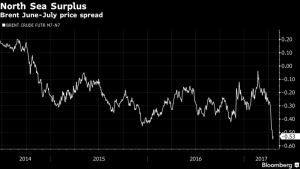There is an old truism (cite?) that when capitalism and democracy come into conflict, capitalism will always win. But for a long time now it has seemed that the holy virtues of the market are failing the political preferences of the American right. Reasons become excuses and victors turn themselves into victims when they really have to fight against ideas they once supported like market power, not to mention the popular vote. It’s all a bit embarrassing once you step back for a moment. We’ve just gotten used to it, but the whole concept of ‘far-left finance’ is just as crackpot as ‘left-wing corporate media.’ We’re sorry, but no:
Economic modernity isn’t what it used to be. Today, some of America’s largest investors are pension funds that aggregate the savings of unions and public-sector employees, and mutual funds that pool the retirement accounts of white-collar professionals. None of these constituencies are remotely as demographically or ideologically similar to the contemporary conservative base as the capitalist class of yore was to the right-wingers of the mid-20th century. Indeed, over the past 70 years, America’s top executives, money managers, and professionals have grown more diverse, cosmopolitan, and socially liberal, even as the GOP base has grown increasingly animated by exclusionary nationalism and culture wars.
At the same time, consumer-facing brands now covet the favor of young city dwellers, both within America’s borders and beyond them. This is because such consumers are more likely to try new products than your average elderly person in rural America, and the former’s brand loyalty is more valuable, since they are less likely to die soon. That reality, combined with the imperative to compete outside the U.S. market, leads many of America’s most visible firms to align themselves, however superficially, with a progressive and cosmopolitan cultural politics.
Finally, the reality of climate change has given private investors both ideological and financial reasons to disfavor the carbon-intensive industries that supply a disproportionate share of the GOP’s corporate funding. Many public employees and socially liberal professionals like the idea of investing in the green transition, while plenty of far-sighted financiers believe that heavy exposure to fossil fuel assets is unwise in the long-term.
To blame this on some sort of woke anything is just a slur. They can’t compete so they just whine. Refusing to acknowledge where the markets and money flow is not some sort of physics you can undermine with new made-up laws of specialer relativity because you don’t agree with gravity.
Babies are at least honest about what’s in their diapers.

 We wish they were more rare. But just as rising wages are bad news for business(?) and solar most horribly spells doom for coal, word in the oil game is that consistent catastrophes are needed
We wish they were more rare. But just as rising wages are bad news for business(?) and solar most horribly spells doom for coal, word in the oil game is that consistent catastrophes are needed 